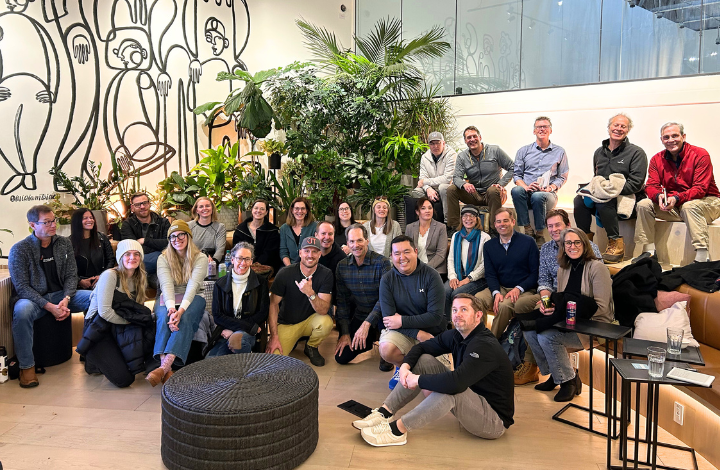What separates freelance newbies from freelance pros? It’s pretty simple: the pros carry themselves like pros—in their writing, their correspondence, their networking, their social media…and everything else that goes into building a freelance writing career. Here are 13 must-dos to make the move to freelance pro.
1. Hit Your Deadlines
What editors need from you, first and foremost, is your article, in their inbox, when it’s supposed to be there. They can work with a mediocre article but they can’t work with nothing.
Nothing screams amateur louder than not getting your article submitted on time. It sends a message to editors that you’re flakey and unreliable. Make this one mistake and an editor may not hire you again. If there’s a really good reason you can’t make a deadline, let the editor know ASAP what the situation is.
2. Reach Out to People
What’s the best way to get a foot in the freelance writing door? Reach out to people and publications. You can pitch article ideas or you can send a letter of introduction to editors.
My foot in the door writing gig was with the Santa Cruz Weekly. I emailed the editor and asked her advice on getting started freelancing for the paper. She suggested a short internship so she could get to know me and my writing style.
After my eight week internship of eight hours per week (easy peasy), she started hiring me as a freelancer. Five years later, I’m still freelancing for that paper’s parent company and have a steady weekly gig writing music features and blurbs. There are a lot of people out there who can help you get started. Don’t be afraid to reach out and ask for guidance.
3. Find a Niche
Do you want to be a music journalist? A news reporter? A tech columnist? A features writer? Having a niche helps you establish yourself as an expert in a field. Knowing and working within your niche also strengthens your personal brand and makes it clear to potential clients and editors where your strengths lie.
Not sure what your niche is? Don’t worry. Keep writing and you’ll soon find which pieces get you stoked and which ones fill you with dread. Follow the stoked ones, but keep in mind that sometimes that feeling of dread means you’re being stretched out of your comfort zone, and that’s a good thing.
And don’t worry about being locked into one thing. You can always write outside of your niche as opportunities arise. When I started freelancing, I told my first editor that I just wanted to write about arts, music and culture, so that’s what she assigned me. Over the years, however, my areas of interest have changed. In 2010 I started writing about the sharing economy for Shareable and found that it was a perfect fit for me, so now when people ask what I write about, I say, collaboration, community, the sharing economy and music.
I feel confident that I could take on a number of different beats, and I do occasionally write outside of my key areas of interest (I had a short stint as a style writer but that’s for another post), but I know where my interests, passion and strengths lie.
4. Start Tweeting. Today!
If you’re not already tweeting, set up an account and start today. It’s a slow burn to get followers, and the sooner you start, the better. Twitter is one of the best tools to promote yourself as a freelance writer, establish yourself as an expert in your niche, and become part of the global freelance community.
You can glean mountains of valuable resources about writing, marketing, branding, social media and freelancing by following other people. It’s also a bonus to editors who see that you have a social media following and can tweet about articles you’ve written for their publication.
Be active, tweet, retweet, answer questions, link to valuable articles, learn the conventions of Twitter. Before you know it you’ll have 50 followers, then 100, then 250, etc. There are companies through which you can buy lots of followers, but be careful with those.
Anyone who has spent much time on Twitter can smell a spammy follower count a mile away. I chose early on not to pay for followers for two reasons: I want my Twitter community (and my freelance business in general) to be based on authenticity. To have 20,000 followers, many of which are fake accounts and the others are strangers who will “follow back” anyone, is, in my opinion, the opposite of authentic.
5. Connect with Freelancers Union
Created to support and grow the freelance community, Freelancers Union is a treasure trove of information, resources, community and more. It’s a national organization, led by the incredible Sara Horowitz, that advocates for the new freelance workforce. The blog is packed with interesting articles and they are big time advocates for helping freelancers with the essentials: health insurance, contracts, finding gigs, etc. You can find them on Twitter, Facebook, Instagram and Google+.
6. Set Up (and Post To) a Blog
If you don’t already have one, get a blog set up. I recommend using WordPress. I’ve been using it for over 10 years and it’s worked great for a variety of projects. Start blogging in a way that supports your brand and vision for where you want your freelance career to go.
Want to do nature writing? Start blogging about your experiences in nature, great spots in your town, other nature-based books, articles, blogs, etc. Same thing goes for music, pop culture, tech, education, spirituality, etc. Blogging will get you writing and when you link to your blog in all your social media and emails, it strengthens your brand to have a collection of articles specific to your niche.
7. Set a Schedule
I’m generally up at 6 a.m., tea in hand, at the computer writing. Around 9.a.m. I get ready and head down to my coworking space. Most days, I’m finished with my to-do list by mid-afternoon and can get away from the computer and out into the world. This schedule works great for me.
A freelance writing buddy of mine, however, prefers to wait until evening, make a big pot of coffee, and write deep into the night. Whatever works for you is fine. Just create a routine and stick with it. You’ll be more productive and efficient and, once you’ve carved out your writing time, it will be easier to protect it from distraction.
8. Be Professional In All Things
No matter where you are in your freelance career, be professional in your networking, emailing and social media. Always. Every time. Every person. Don’t think that you can post a thoughtful article on your blog, then follow it up with a smack-talking rant about how drunk you were last night and think it doesn’t reflect on you. It does.
If you’re a famous comedian or rockstar who makes a living being a drunk mess, this doesn’t apply to you, but if you’re an up-and-coming freelance writer, watch yourself.
Be careful about being too casual in business emails. Always be nice and friendly and warm, but you don’t want to drift into territory where you’re signing off with a row of emoticons or saying, “Thanks, dude,” until you know the person really well…or possibly never.
9. Play Nice
You’re going to have experiences as a freelancer that are maddening and frustrating and make you want to scream. Don’t lash out. And especially don’t lash out at people via email or text, as those things have a way of sticking around. It’s far better to discuss an issue in person, try to find a way to get on the same page, and move on. If you find that the same person is causing you unnecessary stress over and over, it may be time to reevaluate whether working with them is worth it.
10. Find a Dedicated Work Space
You need a workspace where you can really focus. Not everything you’ll write requires a distraction-free zone, but the further you go down the freelance writing road, the more you’ll need a designated space to work. Maybe this is a home office, maybe this is a spot at the kitchen table before the kids wake up, or maybe this is a coworking space.
The idea is that when you’re in your workspace, you’re working. You can get some things done with a laptop on your lap, a sandwich in one hand, and Seinfeld reruns on the TV, but to make the move to professional freelance writer, you need a space where you can get stuff done.
11. Don’t be Afraid of an Internship
Internships can be a great way to show off your writing chops to an editor and get to know a publication. If you can work one into your schedule and/or budget, it might be worth pursuing.
While sometimes unpaid, internships can be a valuable foot in the door of a publication. Just make sure that the hours and duration of the internship feel fair to you and will work with your schedule. When I contacted the editor at the Santa Cruz Weekly who would become my first editor, she suggested I do a short internship with the publication then start freelancing for them.
While interning, the experience of having an editor provide feedback, edits and encouragement proved to be the foundation of my freelance career. And when I sent pitches to other editors, mentioning that I was a writer for the Weekly gave me some credibility and let them know I had experience outside of blogging.
12. Love It!
If you don’t love writing, I mean really, really love writing, becoming a freelancer is not the best career move for you. The fact is, you are going to write more than you thought humanly possible. You’re going to get hit with last minute deadlines, flakey interviewees, challenging editors, rewrites of entire articles, and paychecks that don’t show up on time.
It’s going to be stressful and full of pressure and some days you’ll be hanging by a thread. But, freelancing, is, in my opinion, is the greatest! After five years of freelancing, I still pinch myself that it’s my job. Freelancing is exciting and challenging, you’ll meet people from all over the world, you can set your own schedule, write about what you love—I could go on and on. It really is the best job I’ve ever had, on so many levels.
13. Just Start
If you want to get into the freelance writing game, connect with your best self, figure out what you want to write about, and just get started. Remember what Lao Tzu said: “The journey of a thousand miles starts with the first step.”
Photo by Fimb (CC BY 20)






